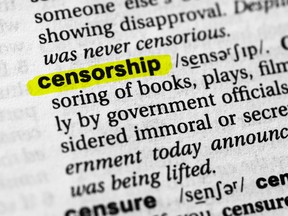
The Alberta government has proposed a review of professional regulatory bodies and how to better protect the right to free expression. In a video announcing the review, to be followed by new legislation next year, Premier Smith said, “What a doctor or lawyer believes or says about politics or religion is not a reflection of their competency to practice medicine or law.” We don’t have details yet about what this review or legislation will look like, but Premier Smith is absolutely correct to be concerned with the expanded claims by professional regulators to police the off-duty and non-practice related speech of their members.
To be clear, these proposals are not restricting the power of regulators to discipline doctors who claim vaccines contain 5G microchips, or accountants who sexually harass clients, or lawyers who hire private surveillance to stalk judges in their cases. This is about regulators claiming authority to silence the political, cultural, social, and religious opinions of their members. I’ve written extensively on the topic of free speech and professional regulation, including in a paper published by the MacDonald Laurier Institute.
Every Canadian has a constitutionally guaranteed right to freedom of expression, including those in regulated professions. Many Canadians are part of regulated professions and have felt the chill of saying things that may be unpopular, even when unrelated to their professional work as a doctor, lawyer, nurse, or accountant. We should all want the professionals we seek advice from to be able to freely engage in the pursuit of truth and best practices without fear.
Professional regulators do not have unlimited and free-wheeling power to regulate all the speech of their members. The Charter applies to the decisions of professional regulators, and they may only regulate off-duty speech when there is a connection to the profession, in furtherance of their statutory mandate to regulate in the public interest, as it relates to the specific professional practice, and their decisions must be justified, and balanced. But case studies show that many professional regulators give minimal consideration to the right to freedom of expression and claim far-reaching power to discipline members for expressing their views on a wide array of topics that lack any connection to their fields, whether that be law, medicine, accounting or other technical subjects.
The story of Dr. Jordan Peterson is well known, but there are many others that have flown under the radar, and many Canadians are unaware that this type of censorship is happening. In her video introducing this new initiative, Alberta Justice Minister Mickey Amery described the example of Saskatchewan nurse Carolyn Strom.
Strom publicly criticized the care her grandfather received at a nursing home on Facebook, advocating for general improvements in end-of-life care. Some nurses at her grandfather’s facility saw the posts and reported her to the Saskatchewan Registered Nurses’ Association, which found that her comments a violated their code of ethics, leading to disciplinary action. Strom had to fight this all the way to the Saskatchewan Court of Appeal, which eventually overturned this decision, affirming Strom’s right to engage in public discourse about healthcare quality without fear of professional reprisal.
Many similarly positioned nurses may not be able to fight back, and would instead choose not to speak out, to the detriment of our healthcare system. Minister Avery also cited another case canvassed in the MacDonald Laurier Institute research; the story of a physician named Dr. Polidoulis.
The doctor objected to a change in how the centuries-old ritual of Holy Communion was being performed at her Greek Orthodox church; during the pandemic, the church changed from using a single communion spoon to multiple spoons. Dr. Polidoulis expressed her objections to the change in a verbal exchange with a priest at her church and in an open letter to her archbishop.
Her statements were theological in nature, but because she was known to be a physician, another congregant filed a complaint with the professional regulator. The College proceeded with an investigation and ultimately issued a caution, despite the fact that Dr. Polidoulis’ comments were about her personal religious beliefs and were not part of a clinical practice of medicine.
Other troubling cases involved physicians who spoke out about their dissatisfaction with fee negotiations between their bargaining group, the Ontario Medical Association, and the provincial government. Two physicians, Drs. Tjandrawidjaja and Drone, wrote strongly worded emails (which included profanity) to the president of the OMA about the deal.
The Discipline Committee of the College of Physicians and Surgeons imposed financial penalties on both these doctors, and Drone’s license was temporarily suspended. All of this because they expressed, in angry language, their dissatisfaction with their bargaining group about their economic and political interests, by way of private email. These communications were not public, at most they were accessible by some OMA staff.
There is no patient who would have less trust in one of these physicians because they used angry and profane language, ubiquitously used in society, to express unhappiness about their economic interests. All of these examples show that professional regulators are willing to discipline or regulate the speech of their members in a scope far beyond professional practice. These regulators have shown a willingness to censor the expression of political, religious and cultural viewpoints.
Smith’s government’s plan to reign in this overreach is badly needed, not just in Alberta, but across Canada. Christine Van Geyn is the litigation director of the Canadian Constitution Foundation. National Post.














